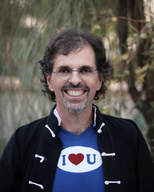|
One of the boldest ideas I have ever encountered entered my awareness at age three. That was the first time I can recall hearing the song, "Row, Row, Row Your Boat." From the moment I heard it, I have been intrigued by that last verse: "Life is but a dream." Maybe the verse is just poetic license--a whimsical notion intended only to amuse and delight. But what if it turned out that life really is a dream? How would we know? The main characteristic of a dream is that it is a product of our imagination. We fill each dreams with people, places, events, and other elements that we create ourselves. Everything in the dream is a product of our psyche. For example, we may take in the scent of a rose in the dream, but when we awaken, we know that this was not an actual rose--just a symbolic representation. Waking life is the gold standard to which we compare our dreams. We know that a dream is not real because it differs in remarkable ways from the characteristics of waking reality. The practice of lucid dreaming as taught by my friend and colleague Stephen LaBerge revolves around the notion of a reality check. In order to realize that you are dreaming while you are in the dream, you might move to a nearby wall and flip a light switch. If something out of the ordinary happens (e.g., a foghorn blares or fountains of water shoot out of the floor), then you have a clue that you are in a dream as opposed to waking reality. But the problem with a reality check is that waking reality itself may not be all that real. The constructivist viewpoint in psychology says that everything we know to be true is a construction of the human mind. We create symbolic representations of everything we experience in our waking life: plants, animals, objects, locations, other people, and even ourselves. We might assume that beyond these symbols lies an objective reality that any sane person can recognize, but this assumption was dispelled by quantum physicists nearly a century ago. As one of the pioneers of quantum mechanics, Erwin Schrodinger, stated so eloquently, "The world is given to me only once, not one existing and one perceived. Subject and object are only one." In other words, objective reality is not so real after all. Physicists have called into question the most fundamental aspects of that reality, proposing that time and space are an illusion. There is overwhelming evidence, as I explain here, that you and I have never touched anything in our lives because that would be impossible:
Given the illusory nature of what we call waking reality, why can we agree on so many things? You and I would probably give identical answers to these questions: What is the date today? Who is the President of the United States? Which two teams are playing in the World Series? It would make sense that you and I share the same reality, which is the basis of our consistency with one another. But what if we agree to the extent that we are of like mind? Your reality and my realty might overlap only because of similarities in terms of how, when, and where we were raised, not to mention what we were taught and our common genetics.
Most of the time that you are dreaming, you are not lucid. In other words, you do not know that it's a dream. And for that matter, neither does anyone else that you encounter in the dream. Rarely does another individual approach you in the dream and say, "Hey, this is not real." Everyone in your dream is equally caught up in this reality that you imagined. Seeing through the facade is not easy. The same might be true for the dream of waking reality. What would it take to experience "lucid waking"? How would you be able to recognize that the seemingly concrete reality in which you are immersed in your waking life is actually a product of your imagination? This is a major theme in all of my writings--especially Deep Creativity. If we can see through the very compelling illusion of objective reality (Einstein: "Reality is an illusion, albeit a very persistent one"), then we are faced with some enormous and extremely exciting questions? What would it be like to awaken fully from the dream of waking reality? Who is the one that is dreaming this dream? If this reality is just a dream, can we change it? If so, how do we do it? What is the point of it all? Why do we have this dream in the first place? When and how did this dream begin? When and how does it end? How do we stay lucid? And what advantages are there to doing so? Lucid dreaming can begin with the recognition that we are living in a dream, but the more advanced practice involves the use of intention to shift the direction of that dream. So, if this waking life is also a dream, and you could experience lucid waking, what would you change? How would you want the dream to proceed? To answer these questions requires vision, as I wrote about in a previous blog. Having a compelling vision for yourself, your community, and your world has to be the starting place for creating meaningful positive change. So, in our "Play Inspired, Stay Inspired" workshop this Saturday, October 27, that is exactly where we will begin!
1 Comment
5/4/2022 03:16:45 am
Get CMBT bus stand advertising agency and Hoardings in chennai through Eumaxindia over Chennai cities. Look at cities, pics and get a free quote.
Reply
Leave a Reply. |
I want to hear from you! Please share your questions and comments. And sign up for my newsletter, where I will pass along the insights, ideas, and inspiration that come my way.
Contact me:Archives
November 2023
|


 RSS Feed
RSS Feed
